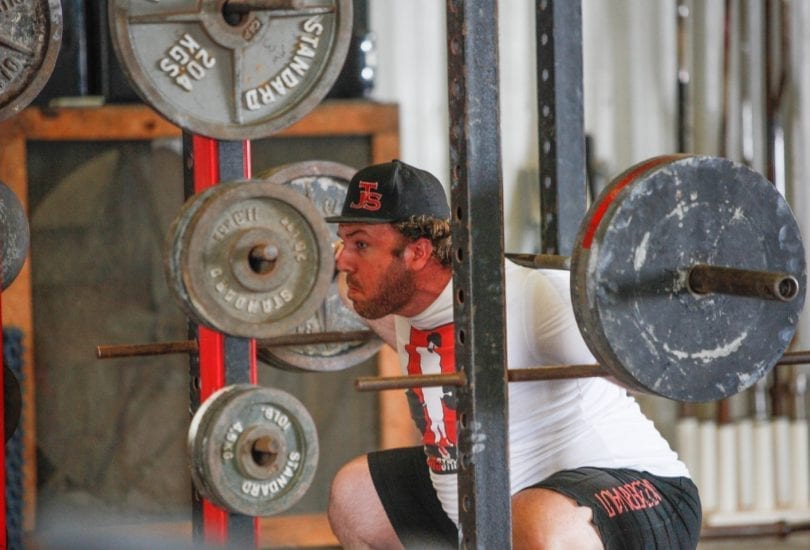Written by Team Juggernaut
This is part 3 of a three-part Q&A series.
5) In regards to punishment workouts: How do you structure these to not detract too much from the real intent of your training programs?
Coach Scott Salwasser of Cal Golden Bears: Try to find exercises that “suck” without going massively lactic; rolling would be one example, or cleaning the weightroom.
Coach Donnell Boucher of The Citadel Bulldogs: I’m at a point now where I favor community service! Its a win-win-win-win: It doesn’t blatantly waste my time, it doesn’t put the athlete in harms way or compromise the program, it requires sacrifice on THEIR part, AND takes care of our facility. That’s not to say physical tasks aren’t ever used; The immediacy of feedback is key for me. Sometimes, I need to get people’s feet placed firmly on the ground and raise some pulses. That might require squat jumps or a shortened rest interval or restarting the whole session. I prefer that to happen NOW, as I believe that quick feedback loop better associates the person’s actions with the consequences. When you have an athlete come back later for punishment, you lose some of that and I just don’t see the cost-benefit being greater. The majority of times, when an athlete comes in for required “extra” work at a later time, it is for a make-up session after they showed up late or missed a session. As rare as those instances have become around here, we’ll always have a handful that need the training.
6) How would implementation differ when training team sport athletes (football, basketball, baseball, etc.) versus athletes who are on a team, but compete in individual sports (wrestling, tennis, swimming, etc.)?
Coach Scott Salwasser: I don’t have much experience training anything other than team sports. My only experience with individual sports was with myself as a weightlifter, and mental toughness came into play by having to train at a high level while still having energy to coach/teach/motivate the athletes I was responsible for.
Coach Donnell Boucher: Truly, I don’t think it differs at all. Self control, accountability, resiliency, awareness, priorities, etc. These aren’t exclusive to any one environment. Back to my definition: staying fully present in order to optimize your advancement. This helps soccer players, snipers, ballerinas, and hammer throwers alike. Where I see people miss the most is deciding that mental toughness is only achievable through physical stress. I would consider Mark Cuban a mentally tough person, and I’m pretty sure he wasn’t doing FRAN during his lunch breaks to get that way. There are many ways to build “mental toughness,” and like most things, they stem from some sort of education or at least, heightened awareness. We take time to educate our athletes about optimal arousal, focus, imagery, release, loss aversion, and a gamut of other concepts from the sport psychology world. Dr. Pat Ivey said something during a talk that really resonated with me: “It’s TRAINED or UNTRAINED.” This made me wonder: Does BUD/S training actually make the candidates tougher, or does it weed out the weak? Do our “Omaha Challenges” really undo the 18 years of social conditioning and influence these kids have just lived through? Or, are we finding people who are inherently mentally tough and TRAINING them to better utilize and groom their innate abilities?
Related Articles
Developing Mental Toughness – Part 1
Developing Mental Toughness – Part 2
Scott Salwasser has worked in the strength and conditioning field for 12 years at the private, collegiate, and NFL levels. He is currently the Assistant Strength and Conditioning Coach at The University of California-Berkeley as well as an accomplished weightlifting competitor.
Donnell Boucher is the Head Strength and Conditioning Coach at The Citadel in Charleston, South Carolina. In his 7 years in this position, Boucher has overseen all of the Bulldogs’ varsity athletic teams.







